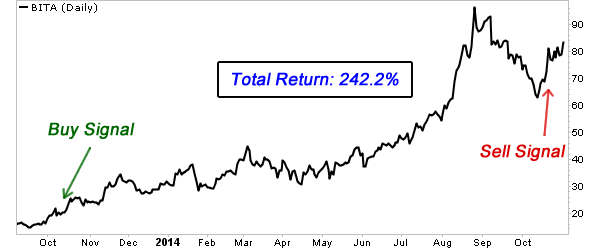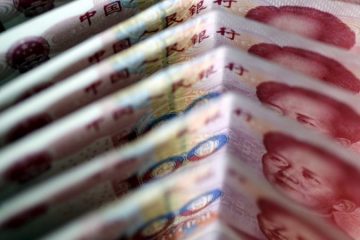2 Profit Triggers Could be Your Ticket to Breakout Stocks

In my 23 years as a trader and money manager, I’ve never seen anything that’s anywhere near as effective at finding stocks before they break out than what I’m about to share with you.
And believe me, I’ve seen it all over the course of my more-than-two-decade career.
I’ve been trading and managing money since I graduated college — from the roaring technology bull market of the 1990s to the bear market of 2001 and financial collapse of 2008.
I worked with famed technical trader Ed Seykota and helped him develop and test one of the very first quantitative relative strength stock trading systems. I managed $ 20 million for a hedge fund. Along the way, I studied and tested dozens of technical indicators and triggers.
I even went so far as to become a Chartered Market Technician (CMT). This certification designed by the Market Technician’s Association signifies mastery of technical analysis. Thanks to the brutal, three-part, 10-hour test required for certification, it’s a pretty exclusive club — with just 1,400 members in the entire United States. In fact, only 57% of those who take the test pass all three parts.
With my background, you might think I’d devise some brain-numbingly complicated system for identifying winning stocks.
However, I’ve learned to keep things as simple as possible. I rely on two profit triggers. When they say “buy” — and my analysis confirms it — I buy. When they say “sell,” I sell.
And, as I mentioned, I’ve never seen anything better than my two profit triggers for providing a combination of safety, simplicity and profits.
Profit Trigger #1 is a powerful technical indicator.
It has been used for decades and studied extensively. Research shows it beat the market every year for 83 years.
Furthermore, Eugene Fama, a famous economist at the University of Chicago, won the 2013 Nobel Prize in Economics for his studies that identified this trigger as a key factor in driving individual stock prices higher. It’s so important that Fama named it the “premier anomaly” driving stock prices.
And get this: A Value Line index using trigger number one as its primary growth driver has beaten the market handily since 1965, returning an astonishing 52,752% compared to the Dow’s 1,854%.
With everything I’ve said about the power of this trigger, you might be tempted to stop right there and just start buying the stocks it identifies as the best.
But there’s a better, safer way.
Profit Trigger #2 is a fundamental indicator that confirms a stock’s potential and weeds out flash-in-the-pan companies investors are buying because they’re popular rather than because there’s something substantial happening.
I discovered early in my career the games companies often play to make themselves look better on paper.
For example, any good CFO can manipulate earnings to meet analysts’ expectations — even down to the penny. And it’s almost impossible to know if the assets on a balance sheet are properly valued or not. The 2008 financial crisis highlighted this to the extreme.
Profit Trigger #2 is much more difficult to manipulate. In fact, because it’s so hard to fake, it’s really the only number I trust in financial statements. And it’s a surefire sign that a company is actually on the ball and that its stock is going up for a good reason.
My two triggers have been used by others in the past — they’ve just never been combined in the way I use them to find stocks like this:

On Oct. 9, 2013, my triggers generated a buy signal for Bitauto Holdings (NYSE: BITA), a company that provides marketing services to Chinese car companies.
It’s a company I might never have noticed if I were immersed in traditional stock research. But thanks to my profit triggers, I did notice it. They led me to a terrific company experiencing sales growth of 50% a year and solid earnings.
Those who took my advice to buy the stock saw their shares more than triple over the next year, rocketing from $ 20.42 to $ 69.87. That’s a return of 242.2% in just 12 months.
If you’d bought when my two triggers told you to, you could have turned $ 5,000 into $ 17,110 in one year. And $ 10,000 would have become $ 34,220.
When my triggers told me it was time to sell, we listened. We didn’t hang in there hoping for bigger gains — and it’s a good thing. The stock collapsed soon after we sold it.
This is just one of the many stocks my triggers have alerted me to before they broke out.
I just put together a presentation discussing my two profit triggers in detail. If you’d like to learn what they are and how you can put them to work in your portfolio, you can gain access here for free.




